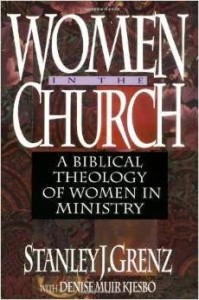Dru McLeland
I am currently following God’s call in the footsteps of my great grandmother, Drusilla, who was a traveling evangelist in the Methodist Episcopal Church, my father, Paul, and my Aunt Dorothy who were ordained ministers and my mother who was a Bible teacher and speaker, all in the Free Methodist Church. Currently, I am a full-time student at Northern Theological Seminary in Lombard, IL pursuing a Master of Divinity degree with emphasis in worship and spirituality. I spent an exciting summer completing my clinical pastoral education requirements in the ACPE program of the Adventist Midwest Health hospital system.
One of the things that drew me to the Evangelical Covenant Church is the affirmation of “both men and women as ordained ministers and at every level of leadership” informed by the word of God” (“Covenant Affirmations” found here.) There is a long history of women in pastoral ministry in my family and denomination of origin. I am surprised by God’s call to ministry on my own life, but not because I am a woman. However, as I experienced and witnessed gender-based resistance from others concerning God’s call, I realized my own need for better understanding of this call. In light of this, I look for books that might be helpful.
 I was excited to find a book written by Stanley J. Grenz, one of my favorite theologians, and Denise Muir Kjesbo called Women in the Church: A Biblical Theology of Women in Ministry (Downers Grove, Ill.: InterVarsity Press, 1995, ISBN 0830818626). Grenz and Kjesbo engage the common evangelical debate over women in ministry from an affirming historical, scriptural and theological Christian evangelical perspective.
I was excited to find a book written by Stanley J. Grenz, one of my favorite theologians, and Denise Muir Kjesbo called Women in the Church: A Biblical Theology of Women in Ministry (Downers Grove, Ill.: InterVarsity Press, 1995, ISBN 0830818626). Grenz and Kjesbo engage the common evangelical debate over women in ministry from an affirming historical, scriptural and theological Christian evangelical perspective.
Their thesis “is that historical, biblical and theological considerations converge not only to allow but indeed to insist that women serve as full partners with men in all dimensions of the church’s life and ministry” (p. 16). They affirm their belief that the Holy Spirit calls and gives gifts of ministry to women and men and opposing God’s call to ministry on the life of a woman, solely because of her gender, is unjust and constitutes opposition to the sovereignty of the Holy Spirit. They advocate the full participation of women and men in mutual leadership of the church for its advancement, focusing on ordained ministry.
The book presents a short synopsis of the views of women in different denominations in the United States, looks back at women in church history, discusses the roles of women in the faith community in general and dives into some of the often quoted scripture passages about women in ministry in Paul’s writings. Grenz and Kjesbo look back to creation and God’s plan for women as they write about the authority of pastoral ministry. They engage issues of hierarchy in the church when they discuss the priesthood of all believers and the mission of the church. Finally, they write about the ordination of women as it relates to the pastoral office in the church.
Although the authors are decidedly egalitarian, they take time to explain the complementarian view of women in the church and how it differs from the egalitarian view. I appreciated the explanations of the differences in the two views and the reasons behind them. They carefully explain the complexities of exegesis of the scripture passages. They use specific examples from history and denominations that clearly illustrate their points. The clear explanations of differing positions, careful exegesis of scripture and specific examples, make this book a helpful tool for understanding the debate over women in ordained ministry.
The book is about 233 pages, contains many citations and endnotes as well as an extensive bibliography. It is organized in an easy to read and reference format with subject headings in bold and sub-headings italicized. The endnotes, bibliography and subject index make the book a good tool for further study and easy reference.
The one disappointment I have with the book is the statistical information is dated, since it was published in 1995 and some of the statistics date back to 1987. Otherwise, I highly recommend this book as a resource for education toward understanding of Biblical, historical and theological affirmation of women in ordained ministry in the church. To find a copy of this book click here.


Dru – Thanks so much for reviewing and recommending this book. I will add it to my must read collection. In some ways the statistical data being a bit dated reminds us of our need to take this mission more seriously as progress is often slower than any of us would have believed. I look forward to jumping into it and hearing from others who might have already read it.
Report This Comment
09.10.14 at 3:23 pm
Great job highlighting a fantastic resource!
Report This Comment
09.10.14 at 3:50 pm
“I am surprised by God’s call to ministry on my own life, but not because I am a woman. However, as I experienced and witnessed gender-based resistance from others concerning God’s call, I realized my own need for better understanding of this call.” I really, really resonated with that statement. Thank you so much for writing this post and for the book recommendation!
Report This Comment
09.12.14 at 4:47 am